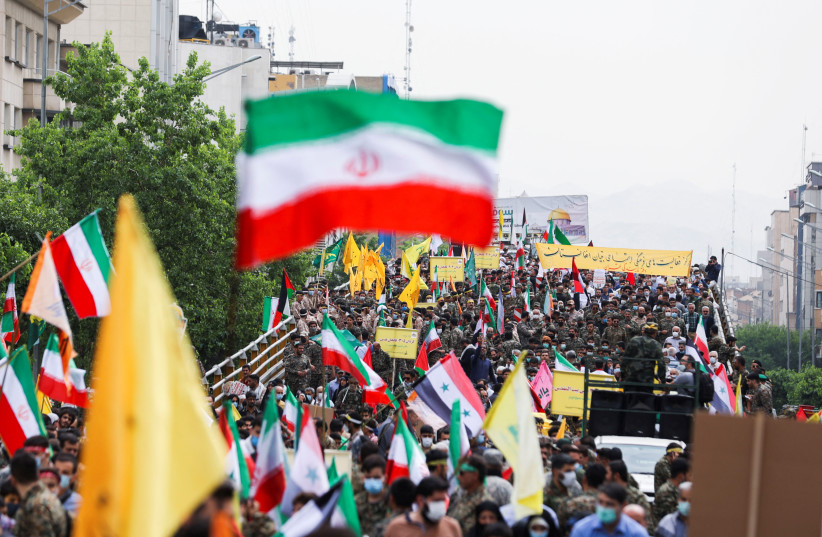Iran has been misleading the world for decades about its nuclear program. And at various junctions, it has even revealed part of what it is up to. This has led to a great deal of knowledge ostensibly about its enrichment program as well as other elements of Iran’s nuclear program.
However, assertions that it continues to lie and obfuscate reveal a deeper problem. Most nuclear programs are clandestine, but Iran has always actively used its program to wring concessions from the West. As such, its nuclear program is not a pure one, like the Manhattan Project in the 1940s or the Pakistan and India nuclear arms race.
What Iran’s program reveals, particularly the way it is shoehorned into a Clausewitz-like war-politics-policy mold, means that the program is not in itself an end to a means. The Islamic Republic may not want to build or test a bomb – yet. It may not have a way to test it yet either. And it may not have a way to put it on a missile yet. Yet it continues to enrich and stockpile uranium.
Israel has recently accused Iran of lying to the world regarding its banned nuclear activity. The BBC noted that Israel’s prime minister made these accusations “ahead of a meeting next week where International Atomic Energy Agency (IAEA) chief Rafael Grossi is due to present a report on its probe into unexplained nuclear material found at three undeclared sites in Iran.”
The report also noted that “Western countries suspect Iran might be seeking to build nuclear weapons in violation of conventions – something Iran strongly denies. Israel considers Iran, which does not recognize Israel's right to exist and calls for its elimination, a major threat to both Israel and the wider world.”

Why is this important?
Iran is indeed misleading the world. It is not only purposely enriching uranium and installing advanced centrifuges; it does some of this openly to wring potential concessions – and it is also doing things in secret. The precise amount of secrecy as compared to what Tehran wants to show the world is key to how its engineers cover up its program. This means that there is also a conflict that plays out between Israel, which is seeking to warn others about the program, and Iran, which hopes the world doesn’t notice what it is up to.
And now there is a third factor. Russia’s invasion of Ukraine has illustrated how a nuclear-armed country may take more risks, knowing that Western democracies don’t want to risk nuclear conflict. Iran understands the deterrent factor of having a bomb. Once it gets closer to the device, it can take more risks.
The Islamic Republic already feels impunity in the region. It has launched attempted drone attacks on Israel, and its proxies in Iraq attack US and Turkish forces. It has seized Greek ships in the Persian Gulf, mined ships in the Gulf of Oman and sends weapons to Yemen, Lebanon and other places. An Iran that gets closer to having more enriched uranium can use this to blackmail the region. That is why the Ukraine crisis could aid Iran.
Furthermore, voices linked to the pro-Iran lobby in the US have now shifted to writing commentary about Russia. They urge America not to escalate against Russia and claim that the West must have “realist” goals in forcing Ukraine to concede to Moscow. This is how they also want the Middle East to deal with Iran.
As such, the pro-Iran lobby, now becoming the pro-Russia lobby, is constantly wary of “war” and especially a conflict with “nuclear-armed Russia.” Iran is operationalizing this lobby when it wants to threaten “war.” Tehran’s lies about its nuclear program appear to foreshadow worse to come.
We know that historically, nuclear programs are clandestine. Iran’s program is more complex, in part designed to make claims to the world that sometimes go beyond its capacity. On the other hand, it also continues to enrich and stockpile uranium, knowing that if it were to test a device, it would likely need to consult in part with its friends in Beijing – as well as Russia, Pakistan and Turkey.
